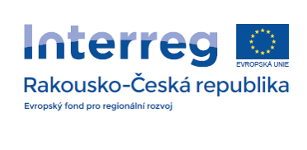 <<<
<<<
New research grants awarded
Assoc. Prof. Rudiger Ettrich was awarded a 5-years grant for the study of Cleavage and translocation by Type I restriction-modification complexes (Czech Science Foundation P207/12/2323, with co-applicants Dr. Marie Weiserova from the Institute of Microbiology in Prague, and Dr. Lumir Krejci from the Science Faculty at Masaryk University in Brno).
Assoc. Prof. Ivana Kuta Smatanova was awarded a 5-years grant to her co-affiliation at the University of South Bohemia for the study of Structure-function relatiosnhip in haloalkane dehalogenases (Czech Science Foundation P207/12/0775 with co-applicant Dr. Radka Chaloukova from the Science Faculty at Masaryk University in Brno).
CONGRATULATIONS!!!!
Assoc. Prof. Ivana Kuta Smatanova was awarded a 5-years grant to her co-affiliation at the University of South Bohemia for the study of Structure-function relatiosnhip in haloalkane dehalogenases (Czech Science Foundation P207/12/0775 with co-applicant Dr. Radka Chaloukova from the Science Faculty at Masaryk University in Brno).
CONGRATULATIONS!!!!
Type I restriction-modification enzymes differ significantly from the Type II enzymes used in cloning. Un-methylated targets induce them to pull thousands of basepairs through the enzyme before cleaving distant sites nonspecifically. We solved the first crystal structure of an intact Type I motor subunit, and proposed a mechanism for coupling its DNA translocation and cleavage activities that was affirmed by mutagenesis and crystallography. Assoc. Prof. Rudiger Ettrich was awarded a 5-years grant for the study of Cleavage and translocation by Type I restriction-modification complexes (Czech Science Foundation P207/12/2323, with co-applicants Dr. Marie Weiserova from the Institute of Microbiology in Prague, and Dr. Lumir Krejci from the Science Faculty at Masaryk University in Brno) which will apply diffraction, model-building and MD simulation, mutagenesis, and bi- ochemical, biophysical, and in vivo analysis to acquire mechanistic data that will elucidate the structure and function of the multisubunit enzyme complex. Within the project its features will be compared with other DNA translocases to identify general principles of protein-protein and protein-DNA interaction that underlie their function.
Haloalkane dehalogenases (EC 3.8.1.5) are microbial enzymes with catalytic activity for hydrolytic conversion of xenobiotic and toxic halogenated aliphatic compounds to corresponding alcohols. Until now, only four tertiary structures of these enzymes have been solved by X-ray analysis. Assoc. Prof. Ivana Kuta Smatanova was awarded a 5-years grant to her co-affiliation at the University of South Bohemia for the study of Structure-function relatiosnhip in haloalkane dehalogenases (Czech Science Foundation P207/12/0775 with co-applicant Dr. Radka Chaloukova from the Science Faculty at Masaryk University in Brno) with the aim to 70-410 crystallize several novel enzymes and to solve and deposite their structures to Protein Data Bank within the framework of this project. Additionally, recently cloned and biochemically characterized enzymes will be crystallized and structuraly characterized. Although the molecular structure of three haloalkane dehalogenases is known, some details of the reaction mechanism are not understood yet. Therefore, neutron diffraction will be used in parallel to X-ray diffraction to describe the role of hydrogens in water and protonated residues in the active site and access tunnels connecting the active site cavity. Structural data will be linked to the functional biochemical data leading to better understanding of structure-function relationships of haloalkane dehalogenases and related a/b-hydrolases.



